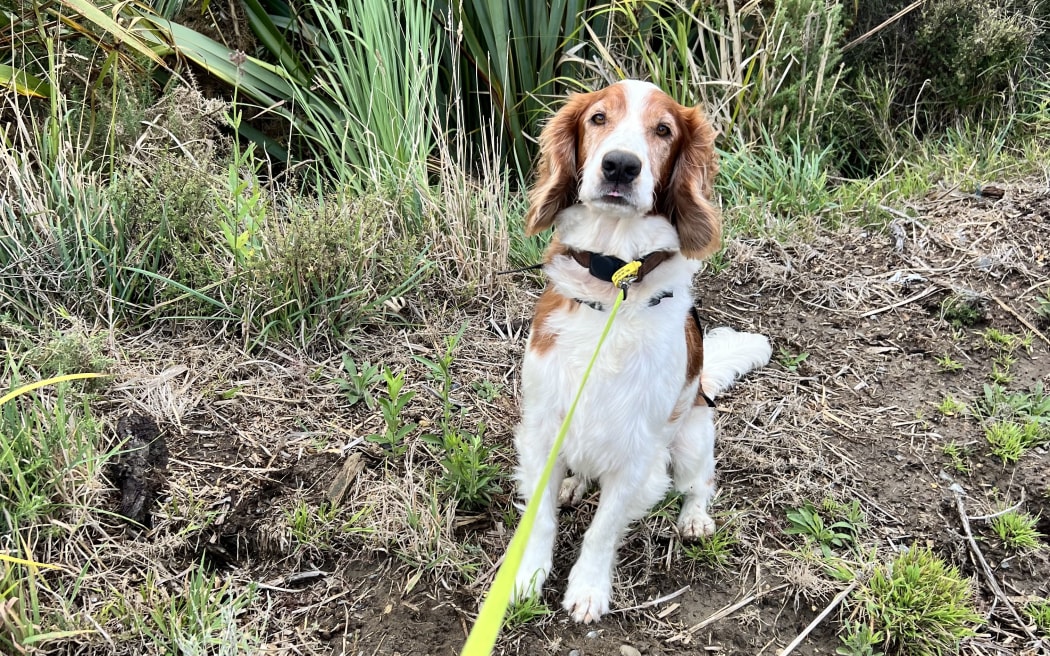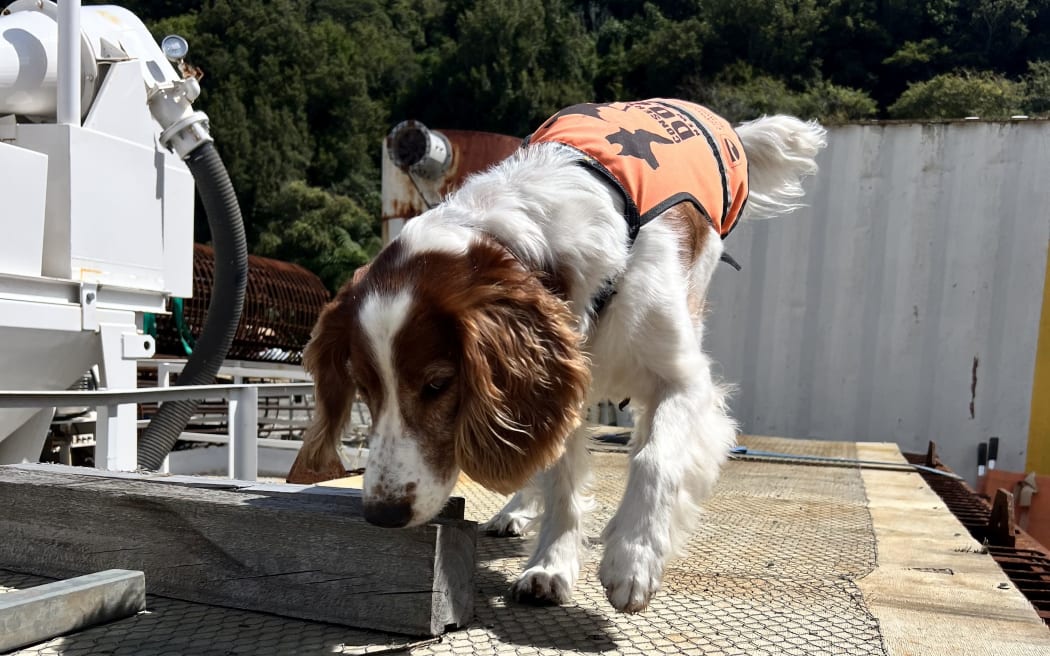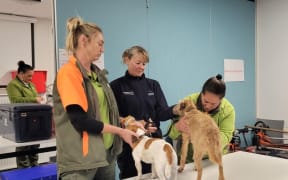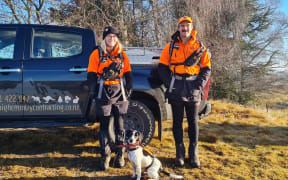
Vito sits when detecting the invasive Argentine ants species. Photo: DOC
When Vito the ant-detection dog woke up on Tuesday morning, he did not expect to become a hero.
But the Welsh springer spaniel has saved Matiu / Somes Island from potential disaster, after finding a large colony of the invasive pest Argentine ant species nesting on building materials destined for the island's new wharf.
Vito's handler, Department of Conservation senior ranger Adeline Bosman, said the ants posed a serious risk to native species.
"The bad news is the ants are present, and that they exist in New Zealand at all," she said. "The good news is we found this lot before they made it onto a pest-free island, and can handle accordingly."

Detector dog Vito busy inspecting for Argentine ants. Photo: DOC
Vito is trained to smell the pheromone of Argentine ants specifically, one of five dogs in New Zealand which can do so.
"Certified conservation dogs are the only active tool we have, alongside passive tools like cameras and traps," Bosman said. "If it wasn't for dogs like Vito, we'd be at a much higher risk of these ants spreading even further afield."
On Tuesday, the ants were found while still at the yard on the Kāpiti Coast.
"[Vito] works in front of me, and when he finds it he sits down, and he will just sit there and look at me like, 'It's here Mum,' until he gets his reward, a food reward in this case."
On inspecting the pest-free islands Matiu / Somes, Mana and Kāpiti, no Argentine ants were found.

Vito is trained to detect the invasive Argentine ant species. Photo: DOC
Bosman said the ants were a vicious predator.
"They take both protein and sucrose," she said.
"Imagine a little baby bird hatching on the ground. These ants are really aggressive, and they will just attack and kill, dismantle, and take it back to the nest. Ground nesting birds don't have any defence against them."
They also displaced all the native ants, outcompeting other species.
"When we start seeing other ant colonies ... we know we're getting to the end of the Argentine ant colony."
People travelling to these islands needed to check their gear and their boats, to avoid giving any ants a lift, she said.





